Anionic surfactants
The anionic surfactant can undergo dissociation when being dissolved in water with the part of surface activity exhibiting hydrophobic anion effects. Typical anionic surfactants include soaps, alkylbenzene sulfonates, alkyl sulfonates, alkyl sulfonates, alkyl sulfates, salts of fluorinated fatty acids, silicones, fatty alcohol sulfates, polyoxyethylene fatty alcohol ether sulfates, α-olefin sulfonate, polyoxyethylene fatty alcohol phosphates ether, alkyl alcohol amide, alkyl sulfonic acid acetamide, alkyl succinate sulfonate salts, amino alcohol alkylbenzene sulfonates, naphthenates, alkylphenol sulfonate and polyoxyethylene monolaurate. Anionic surfactants are generally insoluble at low temperatures. If the concentration continued to increase, they will reach a threshold limit, then precipitating out active agent of hydration. Upon increased water temperature at a certain temperature, due to the dissolving of the micelles, leaving the solubility being rapid increased with this temperature point called as catastrophe point. This feature is hold by ionic surfactants.
There are limited numbers of hydrophilic groups in the anionic type surfactant, but there are many types of hydrophobic groups. The raw materials of important hydrophilic group include carboxylic acid, sulfonic acid ester, sulfonic acid, phosphoric acid esters; the raw materials of hydrophobic group include animal and vegetable greases and their hydrolysis products, such as fatty acids, higher alcohols and the synthesized alcohols as petrochemical raw materials, alkanes benzene, α- olefins, etc., animal and vegetable oils include coconut oil, castor oil, cottonseed oil, palm oil, sperm whale oil, beef tallow and fish oil, etc. Furthermore, the rosin acid, naphthenic acid of the natural processed products have also been frequently used. Anionic surfactants also have excellent penetration, wetting, emulsification, dispersion, solubilization, foaming, decontamination, anti-static and smoothing properties.
Anionic surfactants have the largest yield in different categories of surfactants and can’t be mixed together with cationic surfactants for application due to precipitated in the aqueous solution to become ineffective. It can be used in combination with nonionic and amphoteric surfactants. It is commonly used as detergents, wetting agents, emulsifiers and dispersing agents. It is widely used in industry. In daily chemical industry, it is used in various kinds of detergent; in the field of cosmetics, it is used as the foaming agents of shampoos, bath, various kinds of creams, toothpaste, dispersing and emulsifying agents; in the field of food, it can be used as an emulsifier, defoamers, dispersants, preservatives, solubilizers, thickening agents and protein stabilizing agents and so on; it can also be used as feed emulsifier, dispersant, stabilizer; in the field of medicine, it can be used as emulsifiers, thickeners, preservatives, antioxidants and so on;
in the textile industry, it can be used as oiling agent, dyeing auxiliaries, bleaching agents, soft processing agent; in the field of pesticides, it can be used as spraying agents, emulsifying agents and dispersants; it can be used as asphalt emulsifier in highway and urban road construction such as tall oil sulfonate; in the field of civil engineering, it can be used as the water reducing agent of cement; in the development of oil field, it can be used as emulsifier, oil displacement agent, lubricant, sand consolidation agent, blocking agent, demulsifier, corrosion inhibitor, reducing agent, fluid loss agent and son on; it can be used as an emulsifier and fuel additive in the petroleum products; in the polymer industry, it can used as an emulsifier and antistatic agents during the emulsion and polymerization, antistatic agents; metal cleaning agent; mining flotation agent; water treatment agent; the brighteners, dispersants, pitting inhibitor in the plating solution and may be added to copper plating bath and nickel plating solution; it also has applications in other fields such as paint, ink, transportation, ship-breaking and other industries.
- Structure:

- Chemical Name:Lithium dodecyl sulfate
- CAS:2044-56-6
- MF:C12H25LiO4S
- Structure:

- Chemical Name:Sodium octyl sulfate
- CAS:142-31-4
- MF:C8H19NaO4S
- Structure:

- Chemical Name:Decyltrimethylammonium chloride
- CAS:10108-87-9
- MF:C13H30ClN
- Structure:

- Chemical Name:CETYLDIMETHYLETHYLAMMONIUM BROMIDE
- CAS:124-03-8
- MF:C20H44BrN
- Structure:
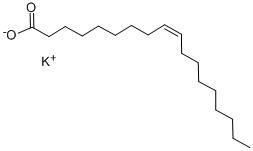
- Chemical Name:Potassium oleate
- CAS:143-18-0
- MF:C18H33KO2
- Structure:
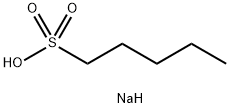
- Chemical Name:Sodium pentanesulfonate
- CAS:22767-49-3
- MF:C5H13NaO3S
- Structure:

- Chemical Name:Sodium dodecyl sulfate
- CAS:151-21-3
- MF:C12H26O4S.Na
- Structure:
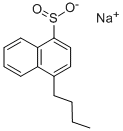
- Chemical Name:Butylnaphtalenesulfonic Acid Sodium Salt
- CAS:25638-17-9
- MF:C14H15NaO2S
- Structure:
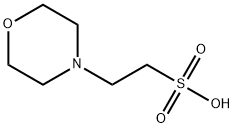
- Chemical Name:4-Morpholineethanesulfonic acid
- CAS:4432-31-9
- MF:C6H13NO4S
- Structure:

- Chemical Name:Sodium 1-butanesulfonate
- CAS:2386-54-1
- MF:C4H9NaO3S
- Structure:

- Chemical Name:SODIUM DECYL SULFATE
- CAS:142-87-0
- MF:C10H23NaO4S
- Chemical Name:LIGNOSULFONIC ACID, CALCIUM SALT
- CAS:8061-52-7
- MF:C20H24CaO10S2
- Structure:
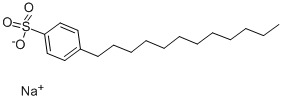
- Chemical Name:Sodium dodecylbenzenesulphonate
- CAS:25155-30-0
- MF:C18H29NaO3S
- Structure:

- Chemical Name:Sodium stearate
- CAS:822-16-2
- MF:C18H35NaO2
- Structure:

- Chemical Name:Magnesium stearate
- CAS:557-04-0
- MF:C36H70MgO4
- Structure:

- Chemical Name:1-DODECANESULFONIC ACID SODIUM SALT
- CAS:2386-53-0
- MF:C12H25NaO3S
- Structure:
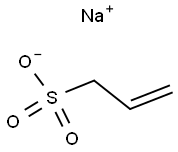
- Chemical Name:Sodium allylsulfonate
- CAS:2495-39-8
- MF:C3H5NaO3S
- Structure:
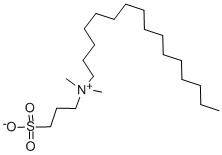
- Chemical Name:3-(N,N-Dimethylpalmitylammonio)propanesulfonate
- CAS:2281-11-0
- MF:C21H45NO3S
- Structure:

- Chemical Name:Sulfonated castor oil
- CAS:8002-33-3
- MF:C18H32Na2O6S
- Structure:
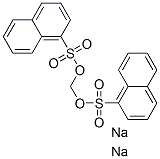
- Chemical Name:disodium methylenebisnaphthalenesulphonate
- CAS:26545-58-4
- MF:C21H14Na2O6S2
- Chemical Name:Cleaner for heat-transfer oil furnace
- CAS:
- MF:
- Structure:

- Chemical Name:LY 171883
- CAS:88107-10-2
- MF:C16H22N4O3
- Chemical Name:Sodium alkylbenzene sulfonate
- CAS:68411-30-3
- MF:RSO3Na(R=C10~C13)
- Chemical Name:Silk softener
- CAS:
- MF:C21H41NaO7S
- Structure:
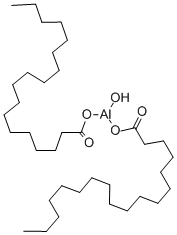
- Chemical Name:Hydroxyaluminum distearate
- CAS:300-92-5
- MF:C36H71AlO5
- Structure:
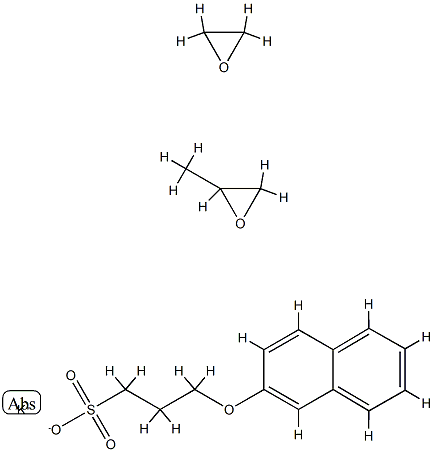
- Chemical Name:Polyethylene,Propyleneglycol (beta-Naphthyl) (3-Sulfopropyl) Diether, Potassium Salt
- CAS:120478-49-1
- MF:C18H23KO6S
- Structure:
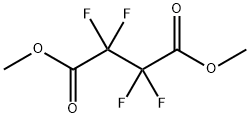
- Chemical Name:DIMETHYL TETRAFLUOROSUCCINATE
- CAS:356-36-5
- MF:C6H6F4O4
- Structure:

- Chemical Name:SODIUM ETHYL 2-SULFOLAURATE
- CAS:7381-01-3
- MF:C14H29NaO5S
- Structure:
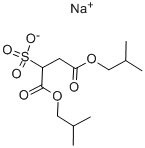
- Chemical Name:SODIUM DIISOBUTYL SULFOSUCCINATE
- CAS:127-39-9
- MF:C12H21NaO7S
- Structure:
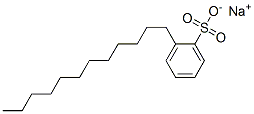
- Chemical Name:DODECYLBENZENESULFONIC ACID SODIUM SALT
- CAS:69669-44-9
- MF:C18H29NaO3S
- Structure:
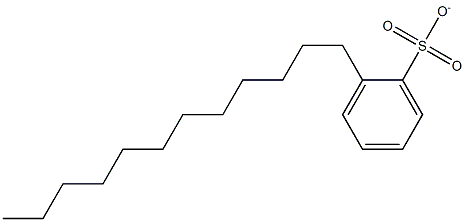
- Chemical Name:2-dodecylbenzenesulfonate
- CAS:94187-92-5
- MF:C18H29O3S-
- Structure:
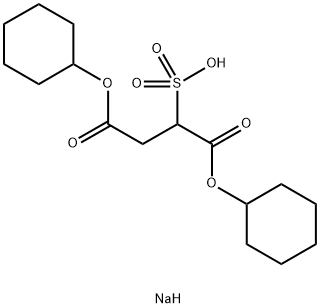
- Chemical Name:DICYCLOHEXYL SULFOSUCCINATE SODIUM SALT
- CAS:23386-52-9
- MF:C16H27NaO7S
- Structure:
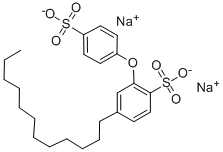
- Chemical Name:Disodium 4-dodecyl-2,4'-oxydibenzenesulfonate
- CAS:7575-62-4
- MF:C24H32Na2O7S2
- Chemical Name:Organosilicon surfactant
- CAS:
- MF:
- Structure:

- Chemical Name:SULFONATED ALIPHATIC POLYESTER
- CAS:1639-66-3
- MF:C20H39NaO7S
- Structure:

- Chemical Name:SODIUM-N-METHYL-N-OLEYL TAURATE
- CAS:137-20-2
- MF:C21H42NNaO4S
- Structure:

- Chemical Name:Dihexyl sodium sulfosuccinate
- CAS:3006-15-3
- MF:C16H31NaO7S
- Chemical Name:Dibasic Lead Stearate
- CAS:56189-09-4
- MF:C36H70O6Pb2
- Chemical Name:Sodium methyl cocoyl taurate
- CAS:12765-39-8
- MF:
- Structure:
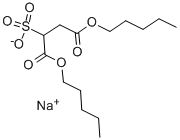
- Chemical Name:SODIUM DIAMYL SULFOSUCCINATE
- CAS:922-80-5
- MF:C14H25NaO7S
- Structure:
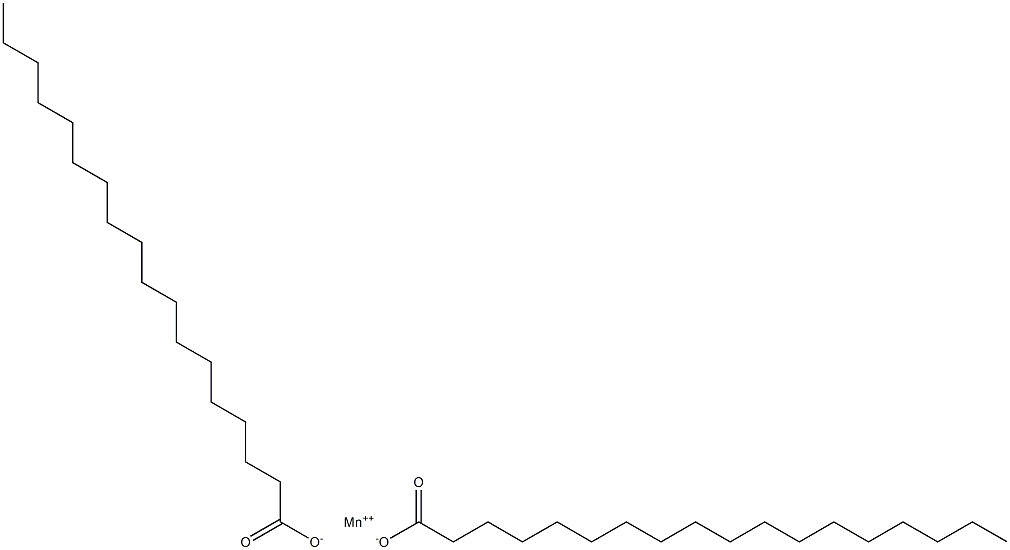
- Chemical Name:Manganous stearate
- CAS:
- MF:C36H70MnO4
- Structure:
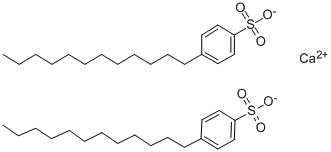
- Chemical Name:CALCIUM DODECYLBENZENE SULFONATE
- CAS:26264-06-2
- MF:C36H58CaO6S2
- Structure:

- Chemical Name:disodium 4-[2-[(1-oxoundec-10-enyl)amino]ethyl] 2-sulphonatosuccinate
- CAS:26650-05-5
- MF:C17H30NNaO8S
- Chemical Name:Fluorocarbon surfactant
- CAS:
- MF:
- Chemical Name:Lamepon A
- CAS:
- MF:C17H33CONHR(CONHr1)nCOONa
- Chemical Name:Sodium poly[(naphthaleneformaldehyde)sulfonate]
- CAS:9084-06-4
- MF:(C11H7O4SNa)n
- Structure:

- Chemical Name:1-HEXADECANESULFONIC ACID SODIUM SALT
- CAS:15015-81-3
- MF:C16H33NaO3S
- Chemical Name:SURFACTANT
- CAS:
- MF:C13H27SO3Na;C17H35SO3Na
- Structure:

- Chemical Name:Ammonium lauryl sulfate
- CAS:2235-54-3
- MF:C12H26O4S.H3N
- Structure:
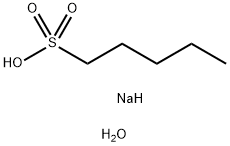
- Chemical Name:1-PENTANESULFONIC ACID SODIUM SALT MONOHYDRATE
- CAS:207605-40-1
- MF:C5H15NaO4S
- Chemical Name:Sodium lignosulfonate
- CAS:8061-51-6
- MF:C20H24Na2O10S2
- Structure:
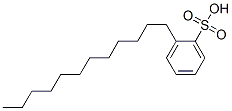
- Chemical Name:Dodecylbenzenesulphonic acid
- CAS:27176-87-0
- MF:C18H30O3S
- Chemical Name:Cocamidopropyl betaine
- CAS:86438-79-1
- MF:C19H38N2O3
- Structure:

- Chemical Name:Sodium lauryl polyoxyethylene ether sulfate
- CAS:9004-82-4
- MF:(C2H4O)nC12H26O4S.Na
- Chemical Name:amidoaminosurfactans
- CAS:
- MF:
- Chemical Name:Jiuma plate amino-acid surfactant
- CAS:
- MF:
- Chemical Name:cleaner LS
- CAS:
- MF:C25H40NO5SNa
- Chemical Name:sodium nonylphenol polyoxyethylene ether sulfate
- CAS:
- MF:C35H63NaO14S
- Structure:

- Chemical Name:2,6-DIMORPHOLIN-4-YLPYRIMIDINE-4-CARBOXYLIC ACID
- CAS:
- MF:C13H18N4O4
- Structure:
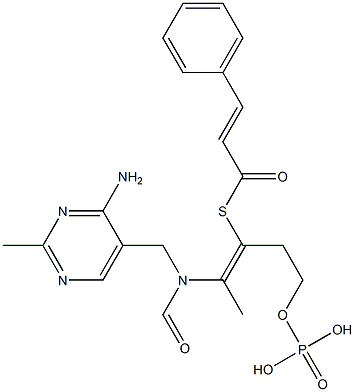
- Chemical Name:Sodium Lauryl Sulfate
- CAS:751-21-3
- MF:C21H25N4O6PS
- Chemical Name:fatty alcohol ammonium sulfate
- CAS:
- MF:C16H37NH4O4S
- Structure:

- Chemical Name:sodium oleyl sarcosinate
- CAS:
- MF:C21H40NNaO2
- Chemical Name:lauryl polyoxyethylene ether triethanol amine salt
- CAS:
- MF:C24H53NO16S
- Structure:

- Chemical Name:dodecyl phenyl ammonium sulfate
- CAS:
- MF:C18H33NO4S
- Structure:

- Chemical Name:sodium pyrrolidone carbonate
- CAS:
- MF:C5H7NNa2O4
- Chemical Name:N-acyl glutamate potassium salt
- CAS:
- MF:
- Structure:
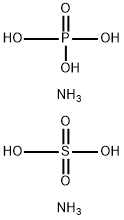
- Chemical Name:sodium polyalkyl phenyl polyoxyethylene ether sulfate
- CAS:76930-58-0
- MF:H11N2O8PS
- Chemical Name:C^{12^} fatty alcohol polyoxyethylene ether ammonium sulfate
- CAS:
- MF:C18H41NO7S
- Structure:

- Chemical Name:stearyltoluene sodium sulfonate
- CAS:
- MF:C25H45NaO3S
- Chemical Name:sec-alkyl sodium sulfate
- CAS:
- MF:RCH(CH3)SO4Na
- Chemical Name:Linear Alklybezene Sulfonates
- CAS:126-66-9
- MF:C22H41NO6Na2S
- Chemical Name:nonylphenyl polyoxyethylene ether sulfate triethanolamine
- CAS:
- MF:
- Chemical Name:sopa
- CAS:
- MF:
- Structure:

- Chemical Name:Sodium n-octylsufonate
- CAS:
- MF:C8H17NaO3S
- Chemical Name:dispersing agent CNF
- CAS:
- MF:[C36H26Na2O6S2]n
- Chemical Name:sulfate AEC
- CAS:
- MF:
- Chemical Name:water-decreasing agent AF
- CAS:
- MF:
- Chemical Name:antistatic finish agent for synthetic fiber
- CAS:
- MF:
- Chemical Name:frothing agent K14
- CAS:
- MF:C13~16H27~33O4SNa
- Chemical Name:glyceryl ethercarboxylic acid salt
- CAS:
- MF:
- Structure:
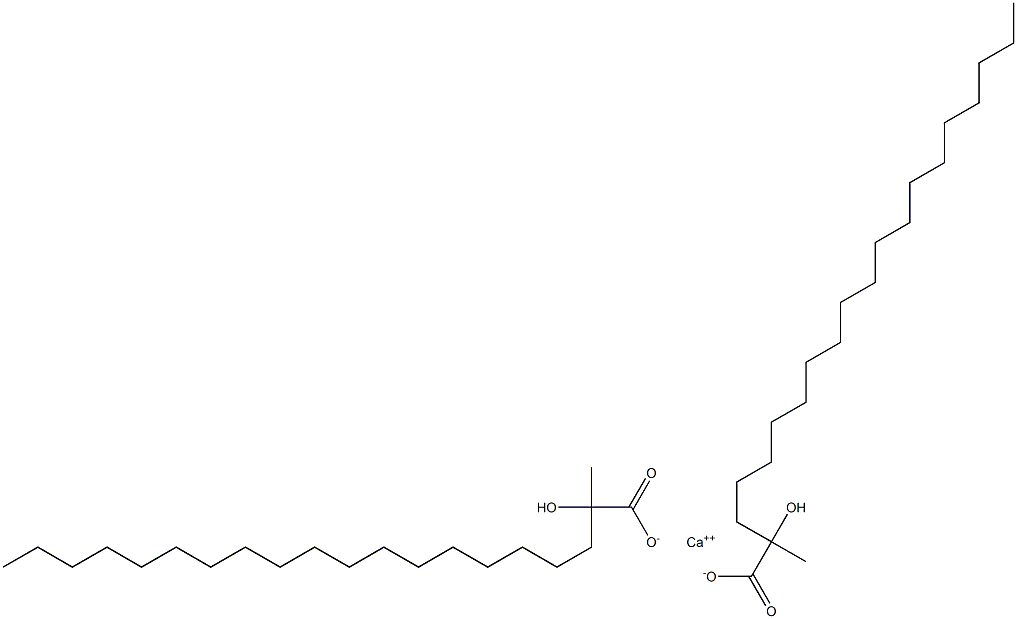
- Chemical Name:calcium stearyl lactate
- CAS:
- MF:C42H82CaO6
- Structure:
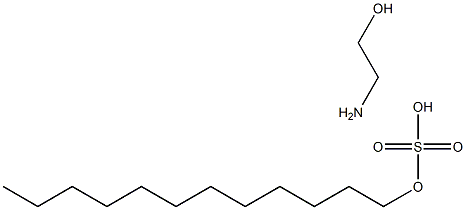
- Chemical Name:monoethanolamine dodecyl sulfate
- CAS:
- MF:C14H33NO5S
- Chemical Name:alkoxy ethanolamido sulfosuccinate sodium salt
- CAS:
- MF:
- Structure:
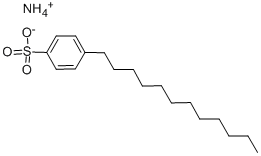
- Chemical Name:ammonium dodecylbenzenesulphonate
- CAS:1331-61-9
- MF:C18H33NO3S
- Structure:
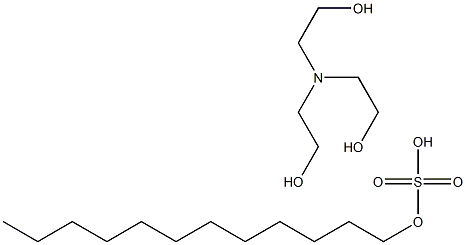
- Chemical Name:dodecyl triethanolamine salfate
- CAS:
- MF:C18H41NO7S
- Chemical Name:dodecay diethanol amine sulfate
- CAS:
- MF:C16H37NO6S
- Chemical Name:Levelling agent S
- CAS:
- MF:C17H13NaO3S
- Chemical Name:water-decreasing agent UNF-2
- CAS:
- MF:
- Structure:
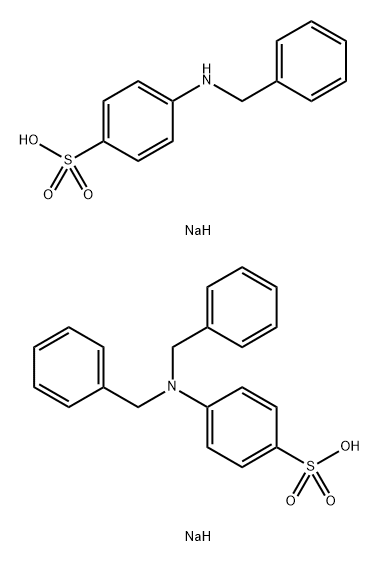
- Chemical Name:sodium dibenzyl amine enzene sulfonate
- CAS:8076-87-7
- MF:C33H34N2Na2O6S2